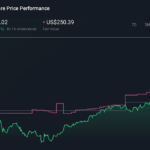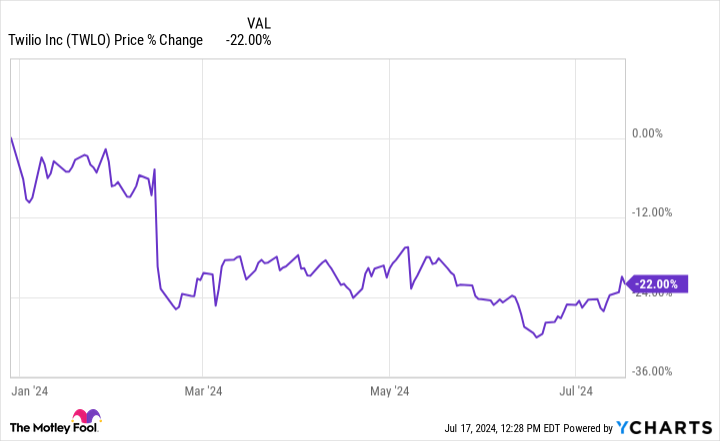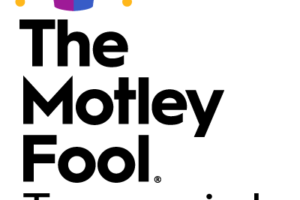Like many growth tech stocks, Twilio (TWLO 1.74%) benefited from a fantastic run in 2021 only to hit a wall in the 2022 bear market. Unfortunately, the communications platform-as-a-service (CPaaS) stock has never recovered, and it fell in the first half of 2024.
Still, CPaaS plays a critical role in the operations of tech-dependent companies such as Uber and Airbnb. Also, the fact that Twilio stock experienced considerable growth at one time indicates that it could happen again under the right conditions. Hence, it makes sense to look at whether the second half of the year may finally be Twilio’s time.
The state of Twilio
Twilio benefited from initial success because it was a first mover in the CPaaS field. Its tools support text, voice, video, and email through application programming interfaces (APIs). More than 300,000 companies use its technology in some form, including many of tech’s top growth companies.
Moreover, Grand View Research estimated the compound annual growth rate of the CPaaS industry would average 31% through 2030, which should have pointed to a promising future for the company.
Instead, Twilio is fighting to stay competitive. To address its financial shortcomings, it has slashed its workforce and dramatically scaled back its stock-based compensation to move closer to profitability.
However, tech heavyweights like Microsoft and Amazon have entered the CPaaS business. This has slowed Twilio’s business so dramatically that its dollar-based net expansion rate was only 102% in the first quarter of 2024, meaning the average long-term customer increased spending by only 2% over the previous year.
Twilio by the numbers
That anemic performance extends to Twilio as a whole. Its Q1 2024 revenue was $1.05 billion, an increase of only 4% from the year-ago quarter. Despite the slower growth, cutting operating expenses helped it reduce its Q1 loss to $55 million. In comparison, Twilio lost $342 million in the first quarter of 2023.
Nonetheless, free cash flow has since turned positive, coming in at $177 million in Q1, up from the free cash flow of negative $114 million 12 months ago. Also, the company expects organic revenue growth between 5% and 10% in 2024, so improvement could come soon.
For now, the stock’s performance seems to reflect the low growth rates. The stock is down 22% so far this year, meaning it missed out on the outsized growth that benefited other stocks.
Also, with no profits, Twilio does not currently have a P/E ratio. Still, its price-to-sales (P/S) ratio is less than 3, down from the peak of the 2021 bull market when its P/S ratio rose above 30.
That heavily discounted sales multiple is a double-edged sword for Twilio. On the one hand, it is a low valuation that could draw investors under the right circumstances. On the other, its inability to attract a higher sales multiple speaks to the depth of its struggles. Hence, until the company can generate significantly higher revenue growth, it is unlikely to see significant multiple expansion.
Stay on the sidelines with Twilio
Unfortunately for Twilio bulls, that lack of multiple expansion probably serves as a warning to watch Twilio stock rather than buy it in the second half of the year.
Indeed, the CPaaS business is in for considerable growth, and Twilio’s efforts to integrate AI into its apps are an encouraging sign.
However, the single-digit revenue growth rates are a sign that competition from Microsoft and Amazon negatively affects Twilio, and the ongoing losses probably demonstrate a limited ability to maintain its competitive advantage over time.
Admittedly, its positive free cash flows bode well for Twilio, and the prospects for increased revenue growth could help the stock over time. But until the company can maintain faster growth rates, investors are likely better off avoiding the stock.
John Mackey, former CEO of Whole Foods Market, an Amazon subsidiary, is a member of The Motley Fool’s board of directors. Will Healy has no position in any of the stocks mentioned. The Motley Fool has positions in and recommends Airbnb, Amazon, Microsoft, Twilio, and Uber Technologies. The Motley Fool recommends the following options: long January 2026 $395 calls on Microsoft and short January 2026 $405 calls on Microsoft. The Motley Fool has a disclosure policy.














